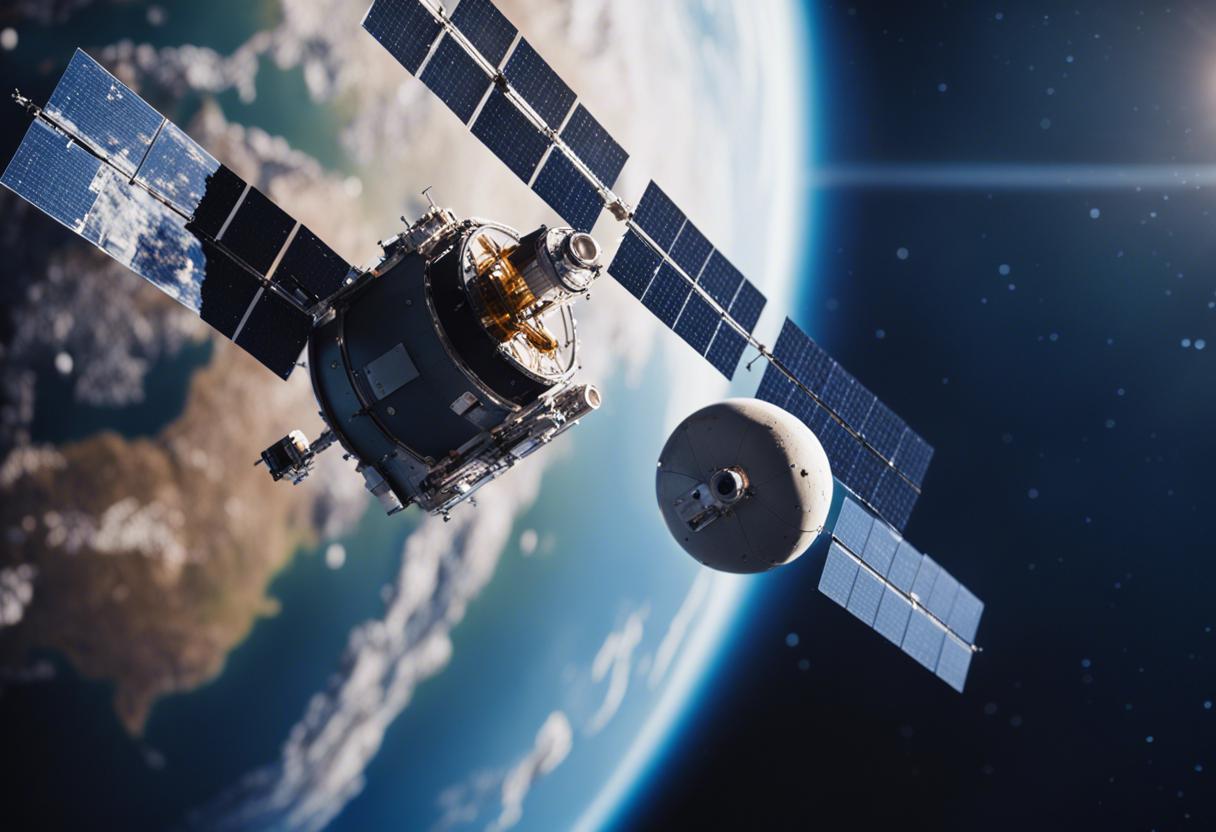Recent progress has been seen in Declan Ganley’s ambitious undertaking to establish an unbreachable network of telecommunications satellites on a vast scale through his firm, Rivada Space Networks. Terran Orbital, the company tasked with the construction of the first segment of approximately 300 satellites for Ganley, has recently been acquired by US aerospace giant, Lockheed Martin.
Lockheed invested $450 million (£409 million) in Terran, equivalent to 25 US cents per share. This significant investment will facilitate the clearing of Terran’s existing financial liabilities and provide a working capital facility of $30 million. Interestingly, the bid from Lockheed is notably less than the one-dollar-a-share proposal made in March, which was declined by Terran’s board. Nevertheless, this transaction is rather timely for Terran, considering its hefty $300 million debt and rapidly depleting cash reserves.
Terran’s revenue declined marginally in the first two quarters of the financial year. As per the financial report released by the company earlier this month, revenue fell from $60.4 million in the first half of 2023 to $57.6 million in the same period this year. Further, Terran indicated the scarcity of available funds which could impede the company’s ability to meet its fiscal obligations within a year’s time.
A $2.4 billion contract was secured by Terran with Rivada in February 2023 to manufacture the 300 satellites, including an option to construct an additional 300 satellites in the future. Rivada, on its part, has been proactive in procuring clients for its planned network, called the OuterNet, while also gathering the multi-billion-dollar funds necessary for its establishment.
According to the semi-annual report released by Terran, Lockheed contributed 71 percent of its group revenue, with Rivada contributing 11 percent. In the first half of 2024, Terran declared it received $6.2 million pertaining to its contract with Rivada, with $1.6 million still due. Interestingly, Terran decreased the valuation of its production backlog from $2.7 billion to $312.7 million, principally due to the exclusion of the unpaid segment of the Rivada contract. Over 90 per cent of the revised $312.7 million backlog is attributed to Lockheed Martin programmes.
Presumably, it’s merely a matter of bookkeeping. A delegate from Rivada has commented: “Our collaborative work with Terran on the agreement remains ongoing, and we anticipate that it will persist both throughout and following this transaction. Terran has been an exceptional collaborator and we wholly foresee this partnership to endure.”
Therefore, Ganley can revert to his duty of amassing the billions required for the OuterNet, while simultaneously managing his interaction with his fresh provider, Lockheed Martin.

